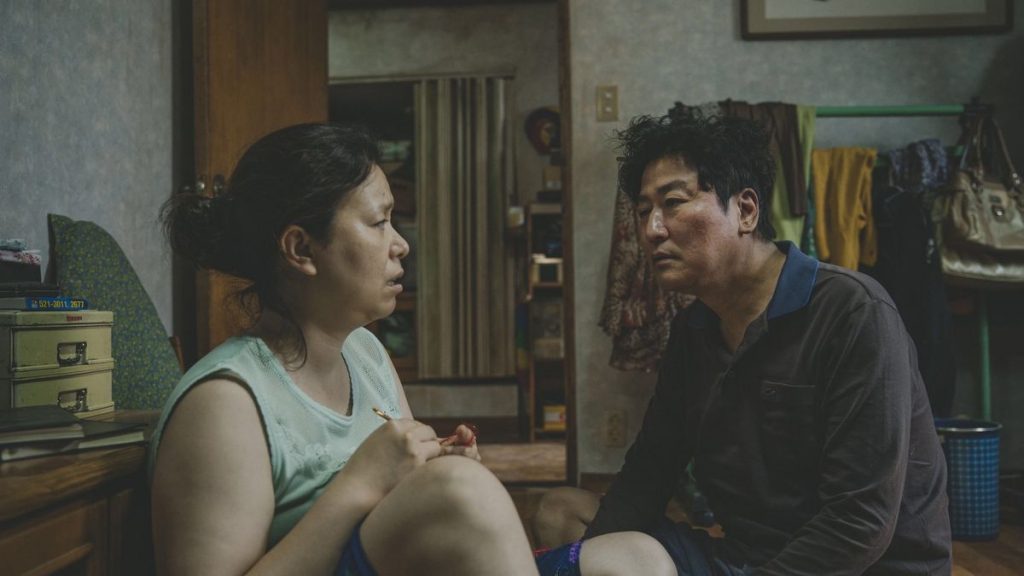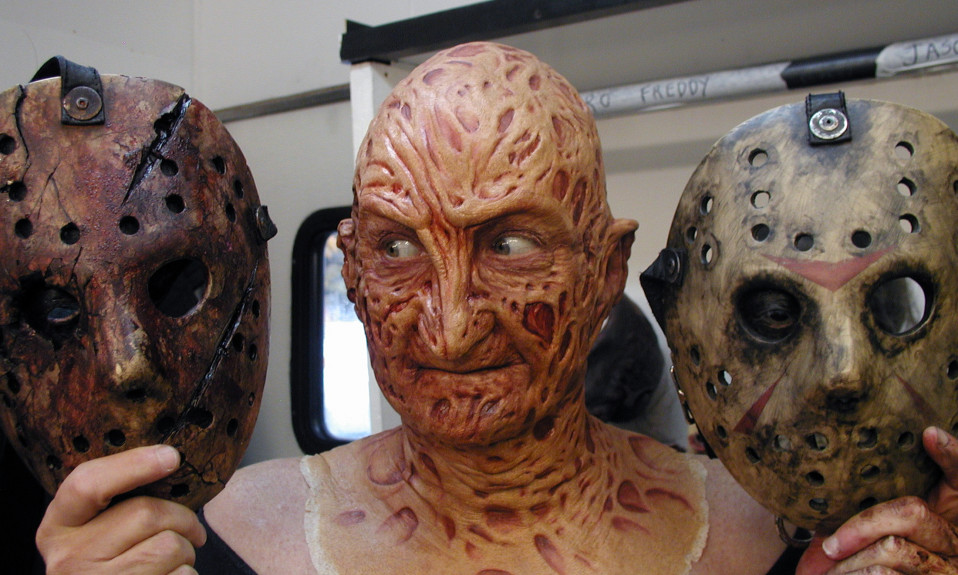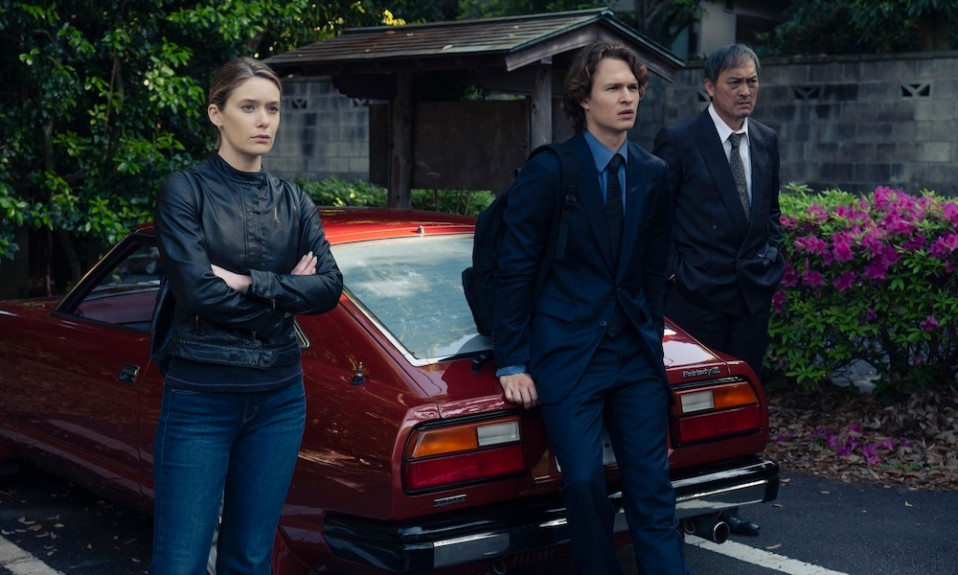When a parasite connects to its host, it’s trying to survive. As an organism it has adapted to this way of life, to rely on its host to endure, to feed, and to live. The host is noticeably weakened by the parasite, its resources now feed two beings and as such parasites are merciless.
When a parasite connects to its host, it’s trying to survive. As an organism it has adapted to this way of life, to rely on its host to endure, to feed, and to live. The host is noticeably weakened by the parasite, its resources now feed two beings and as such parasites are merciless.
In Bong Joon-ho’s Palme d’Or winning Parasite, those organisms are the Kim family. A group who, struck by misfortune and lack of wealth, try to make a living from what they can in their semi-basement apartment. They fold the pizza boxes for a local restaurant, use the WIFI of the person who lives above them, they risk their own health to take advantage of local fumigation via their open windows, and they have to watch each night as drunk men piss outside those same windows. So when an opportunity to tutor the daughter of the wealthy Park family befalls the son of the family, Ki-Woo (played with hope and grit by Choi Woo-shik) a plan emerges.
Ki-Woo likes plans, to know the next step, to already have his counteraction prepared. As it becomes clear the youngest Park child needs an art tutor, he suddenly ‘remembers’ someone he’s heard of and thus, his sister, Ki-jeong (a deftly cool and calm Park So-dam), takes up the mantle of Jessica – an artistic genius and expert in art therapy who studied in the USA. Soon, there appear to be roles for the entire family and they set about making it happen. Utilising titbits of information they hear from the family they find ways to oust the driver and the housekeeper, leaving room for Ki-teak (Song Kang-ho) and Chung-sook (Chang Hyae-jin) to take over. Their infiltration of the Park family is ruthless and smooth.

What then of their host, the Park family? The mother, Yeon-gyo (played sweetly by Cho Yeo-jeong) whose ignorance to the world outside is unwittingly antagonistic and her maternal anxiety only seems to stretch to her youngest son. The father, Dong-ik, the CEO of an IT company, who brings home the money and wins over his son with gifts. They are two people who, as the film twists and writhes into unexpected places, become more grotesque as their out-of-touch air wrestles with their lack of empathy for others. As for their children, Da-song, is a seemingly wild, uncontrollable child while Da-hye is a shy, self-conscious teen, aware of the lack of attention she gets from her parents and thus finds romantic entanglements with all her tutors.
The Parks live in an enviable mansion mostly protected from prying eyes by tall trees in their garden. The suave house, filled with motion sensors, cool chrome finishes, and Voss Water, is the stage on which this symbiotic relationship plays out. The Kim’s infiltrate and live off the Parks and the Parks, ignorant to the toils of the working classes, are none the wiser.
To talk too much more about the film’s plot would rob the viewer of experiencing its wild ride (and it is wild). Instead, what is more, beneficial is thinking about Parasite has to say, with class strategically centred in this astute and pointed story of a wide and cavernous divide. But, make no mistake, the evaluation of Parasite as class warfare is not this critic engaging with the film’s subtilties, far from it. The film wears its anti-capitalist message on its sleeve, open and in plain sight with no chance you could miss it. That is, in fact, one of its strongest qualities: its unabashed commitment to its thesis. The world of the film is the same as the world we live in, the rich find it hard to see the poverty for the trees that they surround their massive houses with. Global warming leads to hotter summers for those beach getaways and rising house prices mean a stronger investment in property and likely more needy tenants to rent to.
It is not the only film to grapple with this divide that simply cannot be ignored. In a piece for Vulture, critic Alison Willmore wrote, “lass rage on the big screen provides a reflection of the particular despair and frustration underscoring our real-world present, where the divide between security and anxiety, both here and abroad, is ever more cavernous.” Willmore placed Parasite alongside 2019’s slew of films that examined that class gap including Ready or Not, Hustlers, Knives Out, and more. Does this mean things are changing?

Parasites notably weaken their host, but when it comes to class nothing seems to be budging, nobody appears any frailer. The rich keep getting richer, the money builds up as billionaires see tax decreases and off-shore accounts continue to exist. But the working classes see none of that dough, it isn’t put back into the economy unless you count the poor wages paid for zero-hour contracts or casual work. And if you don’t like it? There’s a line of hundreds just like you, in need of work, lining up around the block to survive. If there were a job opening ‘500 university graduates would go for it’, Ki-Taek says, highlighting the grim prospects that a lot of young people know all too well.
Bong Joon-ho’s social commentary flick is made more effective through the stylish and gripping way the story unfolds. It’s dark, funny, clever, surprising, and I’m sure I could use almost every adjective in my lexicon. I could go on for hours about the way class and politics come into play but I won’t. All I’ll say is this: parasites don’t intend to harm their host, that is a by-product of the way in which they exist. They want, as all creatures do, to live.
Rating:  (5 / 5)
(5 / 5)
Parasite is being distributed by Curzon in the UK and will be in cinemas 7th February 2020.
Also Read: The Anatomy of a Christopher Nolan Film















1 Comment
Comments are closed.